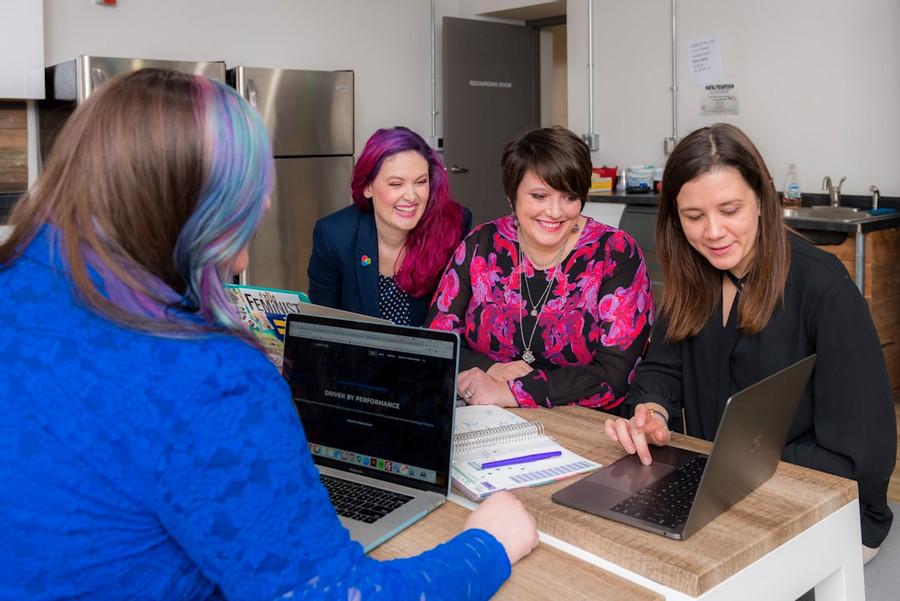When Trust Takes Away from Effective Collaboration
Curated from: hbr.org
Ideas, facts & insights covering these topics:
10 ideas
·1.45K reads
17
2
Explore the World's Best Ideas
Join today and uncover 100+ curated journeys from 50+ topics. Unlock access to our mobile app with extensive features.
Building Trust vs. Proving Trustworthiness
Leaders should be aware of a counterintuitive risk of trust: A strong emphasis on trust can lead to inertia, as employees might prioritize appearing trustworthy over behavior necessary for good, collaborative decision making.
For example, in order to maintain a perception of being competent and trustworthy, an individual might withhold information or share inaccurate information when things aren’t going well.
19
292 reads
Collaboration With Or Without Trust
Trust is not a prerequisite for teamwork and collaboration. Research on teaming and collective intelligence suggests that if we focus on getting a few things right, new constellations of people can collaborate effectively before they’ve had time to build trust.
Successful transformation depends on the organization’s ability to bring people with diverse competencies together to make high-quality decisions. Shifting attention away from creating trust toward information sharing, perspective taking, and effective turn taking can help organizations make progress.
19
198 reads
How Trust and Distrust Interfere with Decision Making
Two things stand out as critical to collaborative decision making on complex challenges.
- In a fast-changing environment, you need access to accurate and updated data in order to make good decisions.
- Being able to include new individuals and their information into teams and decision-making processes.
18
173 reads
Understanding The Meaning Of Trust
Trust is a vague term and has a vast number of definitions. To understand trust in regard to collective decision making, keep these two definitions in mind:
- In the organizational context, trust is most often defined as an interpersonal relationship that forms when a person shows consistent proof of competence, benevolence, and integrity. This kind of trust takes a long time to build and is easily broken.
- Trust describes the intuitive and immediate feeling we get when we interact with another person, especially new individuals.
17
136 reads
Blind Trust And Distrust
Our intuitive feeling of distrust makes us more doubtful of the information brought by new individuals who haven’t had time to prove their trustworthiness. This puts us at risk of undervaluing important information that’s communicated by someone new and overvaluing other information.
Feelings of distrust cause established individuals to challenge a new person in ways that they don’t challenge other established collaborators.
Organizations that overemphasize trust risk triggering this kind of unproductive behavior.
18
124 reads
How Our Focus on Trust Drives Inertia and Poor Decision Making
Individuals naturally want to establish themselves as competent and trustworthy in the eyes of their peers and leaders. But it’s much harder for people to work together on high-impact, complex transformation challenges if they’re more concerned with appearing trustworthy than with effective exchange of information and ideas.
17
118 reads
The Unexpected Behaviours Of Employees
- New individuals hold back information, challenging questions, and out-of-the-box ideas in order to establish themselves as competent, benevolent, and trustworthy.
- Individuals representing the old norm who are not experts in the area of transformation hold back questions and hide ignorance and knowledge gaps because they’re afraid to appear less competent and trustworthy.
18
103 reads
How to Keep Trust from Getting in The Way
To maximize productive behavior and strategic progress when gathering diverse groups to solve important, complex challenges, leaders are wise to communicate that interpersonal trust is not a prerequisite for collaboration.
This is important, as the inaccurate notion that “collaboration is all about trust” is deeply rooted.
19
99 reads
Data To Back The Trust
- It’s vital to get the most accurate data on the table, even when that data is unpleasant to share. Everyone involved is responsible for creating an atmosphere where others can act with both candor and vulnerability when sharing their perspective.
- Our individual willingness to explore and take each other’s perspectives is key to progress and effective decision making on complex challenges.
18
99 reads
The Bottom Line
When leaders focus on getting the conversations right, groups often improve decisions and progress quite quickly. The experience of shared progress often strengthens trust between collaborators. It might sound counterintuitive, but shifting attention away from trust might be one effective way to quickly build trust in new constellations.
18
110 reads
IDEAS CURATED BY
Rylee 's ideas are part of this journey:
Learn more about teamwork with this collection
Effective communication with remote employees
Strategies for building trust and accountability
Techniques for managing remote teams
Related collections
Similar ideas
4 ideas
What if one nation achieves AI dominance? What are the implications for the rest of the world?
trajectorymatrix.substack.com
4 ideas
Untangling your organization's decision making
mckinsey.com
4 ideas
Improvisation Takes Practice
hbr.org
Read & Learn
20x Faster
without
deepstash
with
deepstash
with
deepstash
Personalized microlearning
—
100+ Learning Journeys
—
Access to 200,000+ ideas
—
Access to the mobile app
—
Unlimited idea saving
—
—
Unlimited history
—
—
Unlimited listening to ideas
—
—
Downloading & offline access
—
—
Supercharge your mind with one idea per day
Enter your email and spend 1 minute every day to learn something new.
I agree to receive email updates









